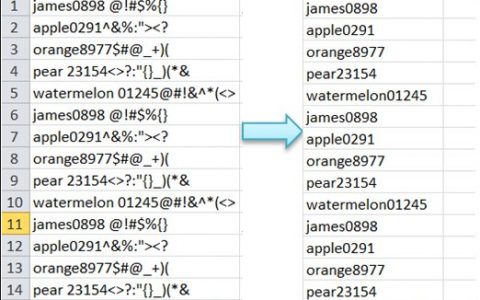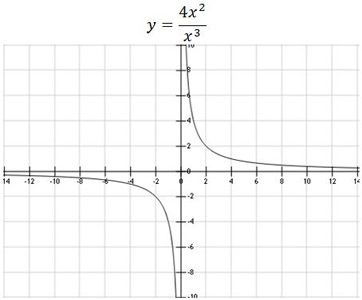Memorising French numerals can be difficult, owing to the French’s peculiar counting methods. Moreover, the good news is that you only need a little mental maths and a lot of repetition to master French numbers. Then, consider generating flashcards or printing out a cheat sheet that you can refer to on the move. Then, if you’re like me and spend entirely too much time reading over the internet, you could have already started learning French if you’ve seen one of these popular French counting memes.

Moreover, the numerals 1-100 in French are even more complicated than un, deux trois (one, two, three). While numbering from 1 to 20 is simple, counting from 60 to 100 becomes considerably more difficult. Then, use these helpful hints to learn how to count to one hundred and beyond. In this article, we are talking about these numbers. So keep reading to know more about it.
Numbers in french 1-10
To remember 1-10, try counting in even and odd digits individually. Counting backwards from ten to zero is another successful strategy.
- First, the number 0 in French is Zéro.
- Then, the number 1 in French is Un.
- Then, the number 2 in French is Deux.
- Also, the number 3 in French is Trois.
- Then, the number 4 in French is Quatre.
- Then, the number 5 in French is Cinq.
- Also, the number 6 in French is Six.
- Then, the number 7 in French is Sept.
- Then, the number 8 in French is Suit.
- Also, the number 9 in French is Neuf.
- Atlast, the number 10 in French is Dix.
Numbers in french 1-20
Furthermore, many numerals above ten finish in the -z sound, such as onze (eleven), douze (twelve), and treize (thirteen). You may recall that they are the “teenz.” This will assist you distinguish between these numbers and the larger ones we’ll see later.
- So, the number 11 in French is Onze.
- Then, the number 12 in French is douze.
- Then, the number 13 in French is treize.
- Also, the number 14 in French is quatorze.
- Then, the number 15 in French is quinze.
- Then, the number 16 in French is Seize.
- Also, the number 17 in French is dix-sept.
- Then, the number 18 in French is dix-huit.
- Then, the number 19 in French is dix-neuf.
- Atlast, the number 20 in French is vingt.
Numbers in french 1-30
When you reach the age of 20, things settle down for a time. To pronounce vingt-sept, start with the French word for twenty, vingt, and then the French word for 7, sept, to get vingt-sept. The one guideline that differs from English is that when there is a number with a one in the last digit, such as thirty-one, you say “and one,” rather than just “one.” Thirty-one would be trente et un, not trente-un.
- First, the number 21 in French is vingt et un.
- Then, the number 22 in French is vingt-deux.
- Then, tThe number 23 in French is vingt-trois.
- Also, the number 24 in French is vingt-quatre.
- Then, the number 25 in French is vingt-Cinq.
- Then, the number 26 in French is vingt-Six.
- Also, the number 27 in French is vingt-Sept.
- Then, the number 28 in French is vingt-Suit.
- Then, the number 29 in French is vingt-Neuf.
- Atlast, the number 30 in French is Trente.
Numbers in french 1-40
Because the rules for numbers 20-69 are the same, you may refer back to the preceding list describing numbers 20-29 to understand how each number works.
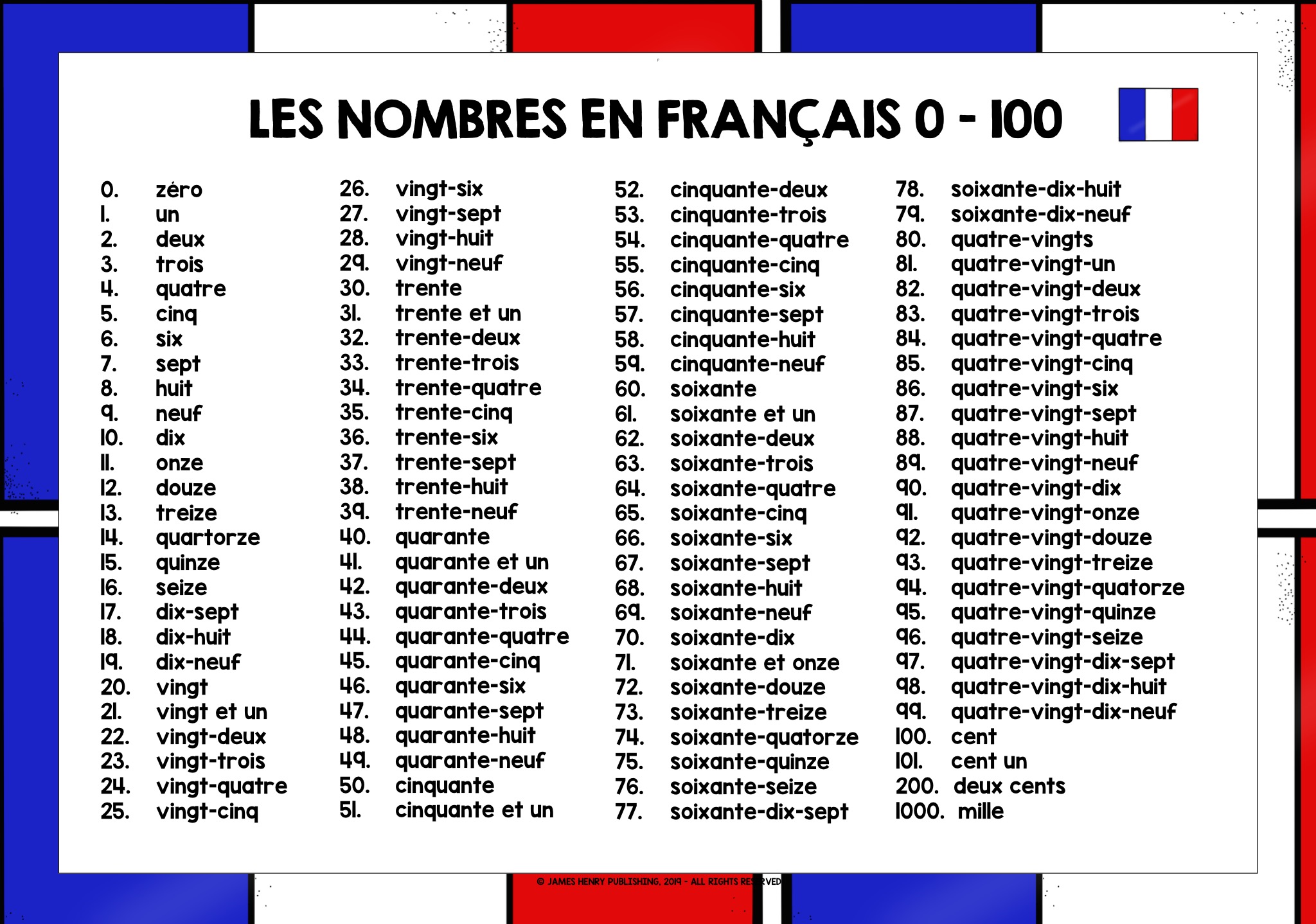
- First, the number 31 in French is Trente et un.
- Then, the number 32 in French is Trente-Deux.
- Then, the number 33 in French is Trente-Trois.
- Also, the number 34 in French is Trente-Quatre.
- Then, the number 35 in French is Trente-Cinq.
- Then, the number 36 in French is Trente-Six.
- Also, the number 37 in French is Trente-Sept.
- Then, the number 38 in French is Trente-Suit.
- Then, the number 39 in French is Trente-Neuf.
- Atlast, the number 40 in French is Quarante.
Numbers in french 1-50
You’ll notice a pattern for all the numbers between 21 and 69. In French, the numerals 21, 31, 41, 51, and 61 are joined by the conjunction “and,” or et (ay), as in vingt et un. Like in English, the other numerals are separated by a hyphen. Twenty-two is pronounced vingt-deux, thirty-four is pronounced trente-quatre, and sixty-seven is pronounced soixante-sept. The first number is a multiple of ten, while the second number is from the “ones” place.
- The number 41 in French is Quarante et Un.
- Then, the number 42 in French is Quarante-Deux.
- The number 43 in French is Quarante-Trois.
- The number 44 in French is Quarante-Quatre.
- Then, the number 45 in French is Quarante-Cinq.
- The number 46 in French is Quarante-Six.
- The number 47 in French is Quarante-Sept.
- Then, the number 48 in French is Quarante-Suit.
- The number 49 in French is Quarante-Neuf.
- The number 50 in French is Cinquante.
Numbers in french 1-60
- The number 51 in French is Cinquante et Un.
- Then, the number 52 in French is Cinquante-Deux.
- The number 53 in French is Cinquante-Trois.
- The number 54 in French is Cinquante-Quatre.
- Then, the number 55 in French is Cinquante-Cinq.
- The number 56 in French is Cinquante-Six.
- The number 57 in French is Cinquante-Sept.
- Then, the number 58 in French is Cinquante-Suit.
- The number 59 in French is Cinquante-Neuf.
- The number 60 in French is Soixante.
Numbers in french 1-70
To count from 60 to 69, say soixante and then follow the same procedure as the numbers in the preceding section (20-69). When you reach seventy, you must pronounce soixante-dix, which translates to’sixty-ten.’
- The number 61 in French is Soixante et Un.
- Then, the number 62 in French is Soixante-Deux.
- The number 63 in French is Soixante-Trois.
- The number 64 in French is Soixante-Quatre.
- Then, the number 65 in French is Soixante-Cinq.
- The number 66 in French is Soixante-Six.
- The number 67 in French is Soixante-Sept.
- Then, the number 68 in French is Soixante-Suit.
- The number 69 in French is Soixante-Neuf.
- The number 70 in French is Soixante-Dix.
Numbers in french 1-80
If the answer is 60-69, it’s simple: Simply add one, two, three, and so on. After you’ve said soixante,’ you may worry about adding the matching adolescent if you’re in the 70-79 range.
- The number 71 in French is Soixante et onze.
- Then, the number 72 in French is soixante douze.
- The number 73 in French is soixante treize.
- The number 74 in French is soixante-quatorze.
- Then, the number 75 in French is soixante-quinze.
- Then, the number 76 in French is soixante-seize.
- Also, the number 77 in French is soixante-dix-sept.
- Then, the number 78 in French is soixante-dix-huit.
- Then, the number 79 in French is soixante-dix-neuf.
- Also, the number 80 in French is Quatre vingts.
Numbers in french 1-90
The ‘et’ vanishes for the number eighty-one. As a result, 81 is quatre-vingt-un, which translates as “four twenty one.” Say ‘quatre-vingt’ (4 x 20) for 82-89, then add un, deux, three, etc. through neuf. For example, ‘quatre-vingt-cinq’ (4 x 20 + 5) est ‘quatre-vingt-cinq’ (4 x 20 + 5).
- The number 81 in French is Quatre-vingt-un.
- Then, the number 82 in French is Quatre-vingt-Deux.
- The number 83 in French is Quatre-vingt-Trois.
- The number 84 in French is Quatre-vingt-Quatre.
- Then, the number 85 in French is Quatre-vingt-Cinq.
- The number 86 in French is Quatre-vingt-Six.
- The number 87 in French is Quatre-vingt-Sept.
- Then, the number 88 in French is Quatre-vingt-Suit.
- The number 89 in French is Quatre-vingt-Neuf.
- The number 90 in French is Quatre-vingt-Dix.
Numbers in french 1-100
If you’re in the 80-89 range, just add an un, two, three, and so on. If you are 90 or above, you must then add the appropriate teen number.
- The number 91 in French is Quatre-vingt-onze.
- The number 92 in French is Quatre-vingt-douze.
- Then, the number 93 in French is Quatre-vingt-treize.
- The number 94 in French is Quatre-vingt-quatorze.
- The number 95 in French is Quatre-vingt-quinze.
- Then, the number 96 in French is Quatre-vingt-Seize.
- The number 97 in French is Quatre-vingt-dix-sept.
- The number 98 in French is Quatre-vingt-dix-huit.
- Then, the number 99 in French is Quatre-vingt-dix-neuf.
- The number 100 in French is cent.
Numbers in french pronunciation
- Make no -n sound when saying the number one (un, 1). Try not to allow the tip of your tongue to come into contact with the roof of your mouth. Listen to the audio below to hear how nasal the sound is.
- Make no “oo” sound when saying the number two (deux, 2). To accurately pronounce “deux,” first say “je” (I in French). Remove the “e” sound and replace it with a -d. “deux” and “je” are rhyming words.
- The French number three (trois, 3) is pronounced “oi.” This is the same as saying “moi” (me). Make sure not to pronounce the silent -s.
- Say keh-truth for the number four (quatre, 4). The last “uh” sound might be voiced or unvoiced.
- Simply say “sank” for the number five (cinq, 5), as in “You sank my battleship!”
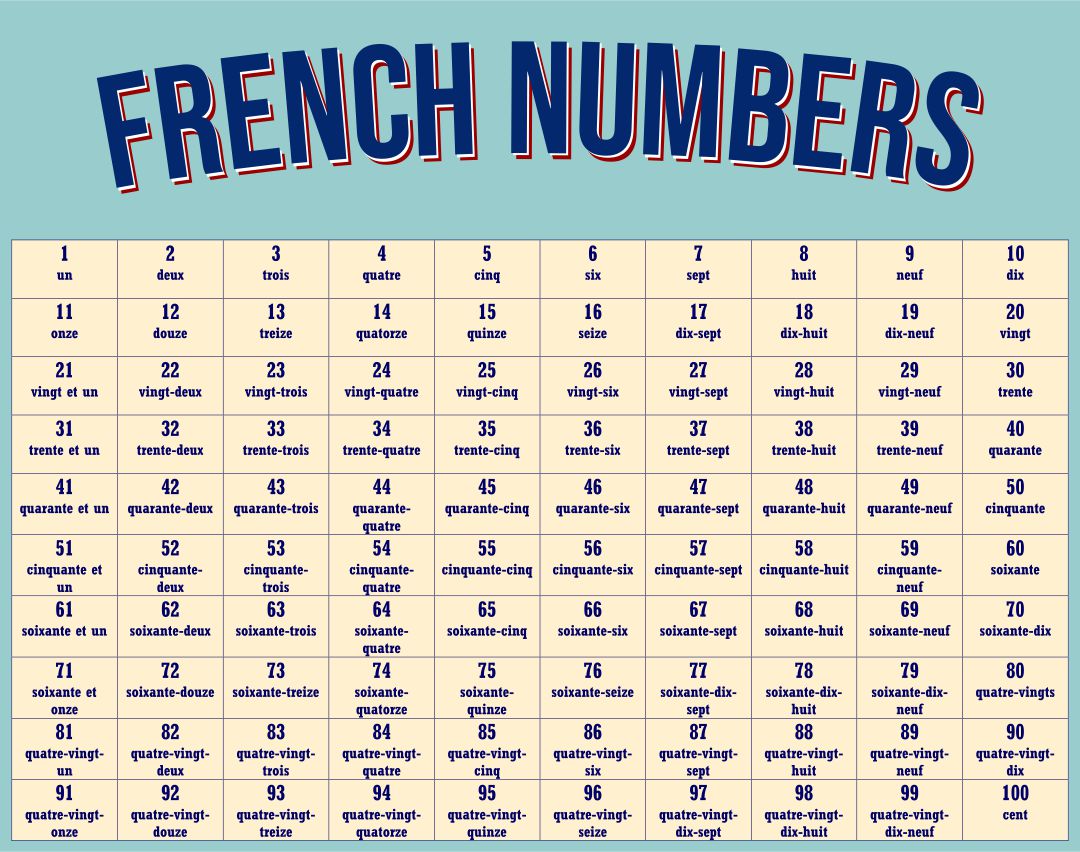
6-10
- The number six (six, 6) has extremely particular requirements for pronunciation. If the number comes before a noun that begins with a consonant, “six” is pronounced “see.” Six pommes, for example, is pronounced “see pum.”
- If the number six is on its own, pronounce it with a -x. “How many apples do you have?” for example. (I’m curious, how many apples do you have?) Six is the correct answer. Say the -x as though you were saying “sees.”
- Simply say “set” as in “I set the table” for the number seven (sept, 7).
- Say “oo-ee-t” for the number eight (huit, 8). This also sounds a lot like the English word “wheat,” as in wheat bread.
- The “eu” sound also rhymes with “je” for the number nine (neuf, 9). Isolate the -e sound from “je” and wrap it in -n and -f.
- The criteria for pronouncing six also apply to ten (dix, 10). When dix comes before a noun that begins with a vowel, do not pronounce the -x and instead say “dee.”
Dix tomates (dee tomates), for example, is pronounced “dee toh-maht.” When answering the question, “How many tomatoes do you have?” (Answer: “-Dix” to the question “How many tomatoes do you have?” Say the -x as though you were saying “Dees.”
Chart
| Number | In French | Pronunciation |
| 0 | zéro | zay-RO |
| 1 | un | uh |
| 2 | deux | duh |
| 3 | trois | twah |
| 4 | quatre | KAT-ruh |
| 5 | cinq | sank |
| 6 | six | sees |
| 7 | sept | set |
| 8 | huit | wheet |
| 9 | neuf | nuhf |
| 10 | dix | dees |
| 11 | onze | onz |
| 12 | douze | dooz |
| 13 | treize | trez |
| 14 | quatorze | kah-TOHR-z |
| 15 | quinze | cans |
| 16 | seize | sez |
| 17 | dix-sept | dees set (equal emphasis) |
| 18 | dix-huit | dees wheat (equal emphasis) |
| 19 | dix-neuf | dees nuhf (equal emphasis) |
| 20 | vingt | van |
Numbers in french language
The consonants at the end of the words cinq and huit are pronounced. This is true only when the numbers are alone (as in the sound files), before a vowel or h muet, or at the conclusion of a phrase. When one of these numerals is followed by a consonant, the last sound is omitted.

- à la une – on the front page of the newspaper, headline news
- le cinq à sept – afternoon tryst
- chercher midi à 14 heures
- couper les cheveux en quatre – to split hairs, quibble
- en deux temps, trois mouvements – in double time, very quickly
- faire d’une pierre deux coups – to kill two birds with one stone
- haut comme trois pommes – very young
- il ne casse pas trois pattes à un canard – he’s nothing special
- quatre à quatre – very quickly
- tourner sept fois sa langue dans sa bouche – to think long and hard (before speaking)
- un de ces quatre (matins) – one of these days
- un tiens vaut mieux que deux tu l’auras – a bird in the hand is worth two in the bush
- le vendredi treize – Friday the 13th
- 24 heures sur 24 – 24 hours a day
- se mettre sur son trente et un – to get dressed to the nines
- tous les trente-six du mois – once in a blue moon
Numbers in french 1-1000
Here’s an intriguing fact. The indefinite article is never used with the numbers 100 and 1000 (cent and mille) (un). Unlike the other greater integers. We use the indefinite “a” and “an” in English. We have a hundred people here, for example. Alternatively, we have a thousand individuals here.
“We have a hundred people here,” we remark in French. or “There are a thousand individuals here.” Only when employing the numerals cent and mille is the indefinite article (un) deleted. When we reach a million, the indefinite article is used once more. Take a look at these samples.
- Nous avons cent personnes ici. – “We have hundred people here.”
- Nous avons mille personnes ici. – “We have thousand people here.”
- Then, nous avons un million de personnes ici. – “We have a million people here.”
- Nous avons un milliard de personnes ici. – “We have a billion people here.”
1-1000
There are a few simple principles that govern larger French numbers.
For values between 100 and 199, use cent followed by the remainder of the number:
- The number 105 in french is cent cinq.
- The number 149 in french is cent quarante-neuf.
- Then, the number 181 in french is cent quatre-vingt-un.
You’ll be pleased with numbers ranging from 200 to 999. They are straightforward:
- The number 200 in french is deux cents.
- The number 300 in french is trois cents.
- Then, the number 400 in french is quatre cents.
- The number 500 in french is cinq cents.
- The number 600 in french is six cents.
- Then, the number 700 in french is sept cents.
- The number 800 in french is huit cents.
- The number 900 in french is neuf cents.
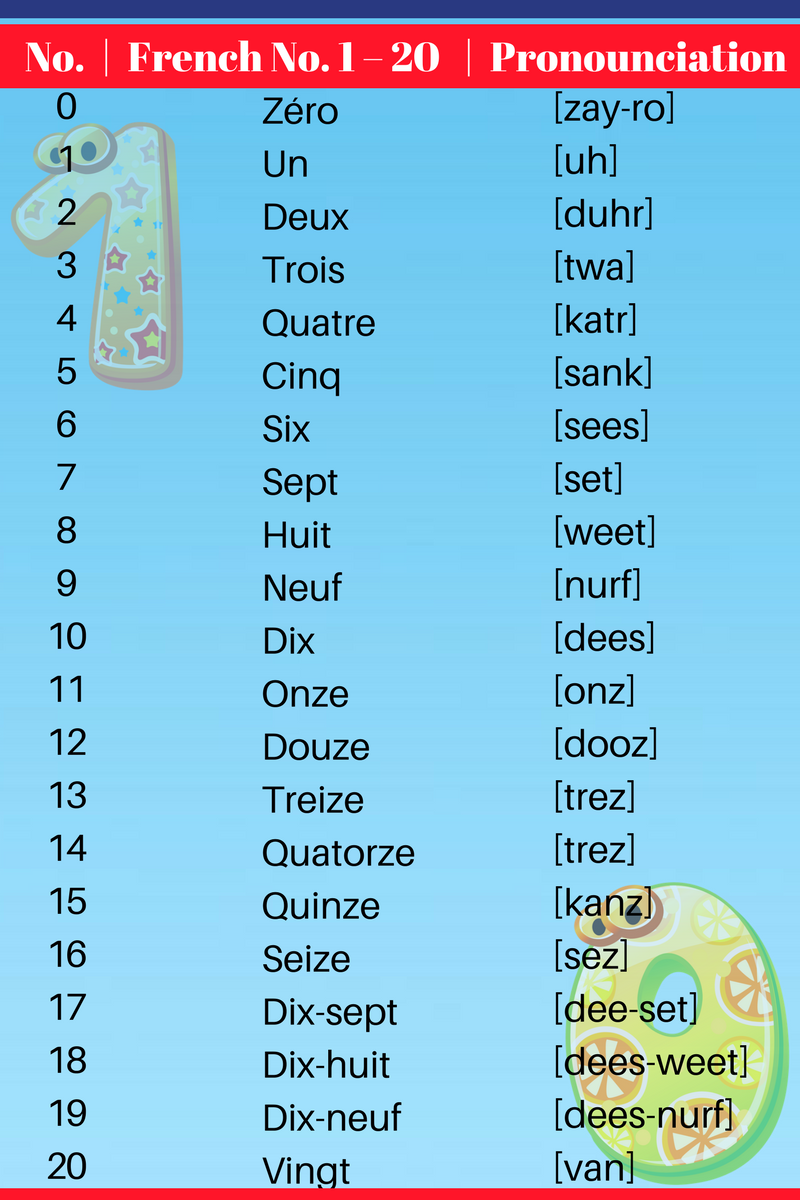
To fill in the gaps for the remaining numbers from 200 to 999, use the same formula as for 100:
- The number 501 in french is cinq cent un.
- The number 508 in french is cinq cent huit.
- Then, the number 530 in french is cinq cent trente.
- The number 531 in french is cinq cent trente-et-un.
- The number 565 in french is cinq cent soixante-cinq
- Then, the number 598 in french is cinq cent quatre-vingt-dix-huit.
Numbers in french 1 thousand to 1 million
Only in numbers like soixante et un mille will you see un mille (61,000). This number must be preceded by an un to be distinguished from soixante mille (60,000). When discussing 1,000 and there is nothing in the “ten-thousands” column, write mille, no un.
Read Also: Empirical Formula Definition, Example, Calculation and More
It’s simple to make new numbers with mille and un millon. The following is a good example:
- First, the number 1,000 in french is mille.
- Then, the number 1,001 in french is mille et un
- The number 1,500 in french is mille cinq cents
- The number 1,766 in french is sept cent soixante-six
- Then, the number 2,001 in french is deux mille un
- The number 40,000 in french is quarante mille
- The number 74,000 in french is soixante-quatorze mille
- Then, the number 100,000 in french is cent mille
- The number 415,297 in french is quatre cent quinze mille deux cent quatre-vingt-dix-sept
- The number 1,000,000 in french is un million
- Then, the number 3,000,000 in french is trois millions
- The number 6,492,000 in french is six millions quatre cent quatre-vingt-douze mille
- The number 8,841,932 in french is huit millions huit cent quarante et un mille neuf cent trente-deux.
Some frequently asked questions
How do I teach French numbers?
Use flash cards with the digit printed on one side and the number’s French spelling on the other. Ask children to count by twos, fives, tens, and so on. Count the number of desks, seats, windows, doors, and pupils in the classroom.
How do you count from 1 to 10 in French?
The French numbers 1-10 are: un (1), deux (2), trois (3), quatre (4), cinq (5), six (6), sept (7) huit (8) neuf (9), dix (10).
How do you count from 1 to 50 in French?
Memorise the numbers 1-9, which are un, deux, trois, quatre, cinq, six, sept, huit, and neuf, to count to 50 in French. Then go on to numbers 10 through 19, which are dix, onze, douze, treize, quatorze, quinze, seize, dix-sept, dix-huit, and dix-neuf.
How do you play Dix?
Dix: Each student counts to 10 in turn. Each student is allowed to say one, two, or three numbers. The guy who gets a ten is eliminated. You can continue beyond ten, and everyone who falls on a multiple of ten is out.
What are the numbers 10-20 in french?
- So, the number 11 in French is Onze.
- Then, the number 12 in French is douze.
- Then, the number 13 in French is treize.
- Also, the number 14 in French is quatorze.
- Then, the number 15 in French is quinze.
- Then, the number 16 in French is Seize.
- Also, the number 17 in French is dix-sept.
- Then, the number 18 in French is dix-huit.
- Then, the number 19 in French is dix-neuf.
- Atlast, the number 20 in French is vingt.
Is English 60% in French?
Although French is mostly derived from Latin (which accounts for around 60% of English vocabulary either directly or through a Romance language), it also contains terms from Gaulish and Germanic languages (especially Old Frankish).
How is the number 814 written in French?
The Number 814 in French is huit cent quatorzième nombre.
What are the numbers 75-80 in french?
- So, the number 75 in French is soixante-quinze.
- Then, the number 76 in French is soixante-seize.
- Also, the number 77 in French is soixante-dix-sept.
- Then, the number 78 in French is soixante-dix-huit.
- Then, the number 79 in French is soixante-dix-neuf.
- Also, the number 80 in French is Quatre vingts.
How do you count to 70 in French?
So, in french, 70 = soixante-dix
Then, 72 = 60 + 12 = soixante-douze.
Then, 73 = 60 + 13 = soixante-treize.
Also, 74 = 60 + 14 = soixante-quatorze.
Then, 75 = 60 + 15 = soixante-quinze.
Then, 76 = 60 + 16 = soixante-seize.
Also, 77 = 60 + 17 = soixante-dix-sept.
Atlas, 78 = 60 + 18 = soixante-dix-huit.

